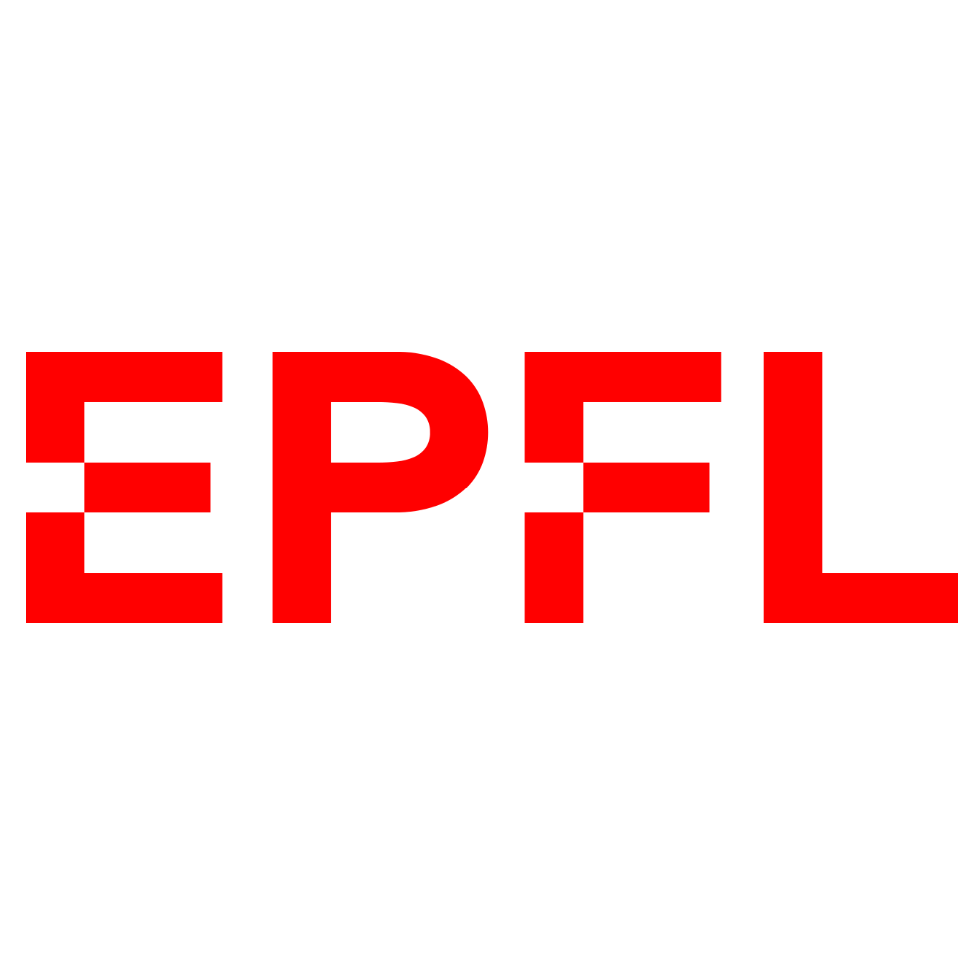
 PhD Candidate
PhD CandidateI am Tian Zhu (朱天 in Chinese), an incoming PhD candidate at LPDI group, École Polytechnique Fédérale de Lausanne under the co-supervision of Professor Bruno Correia and Michael Bronstein. I received my master's degree from Institute of Computing Technology, Chinese Academy of Sciences (ICT, CAS) and bachelor's degree from Beijing Institute of Technology (BIT).
My research focuses on the computational protein design and geometric deep learning for scientific discovery. I am particularly passionate about leveraging AI for drug discovery and design, with an emphasis on proteins and small molecules. My goal is to develop effective AI methods to accelerate actual drug development.
Alone we can do so little; together we can do so much. I am always open to collaborations and discussions. Please feel free to reach out to me if you are interested in my research or have any questions.
Warning
Problem: The current name of your GitHub Pages repository ("Solution: Please consider renaming the repository to "
http://".
However, if the current repository name is intended, you can ignore this message by removing "{% include widgets/debug_repo_name.html %}" in index.html.
Action required
Problem: The current root path of this site is "baseurl ("_config.yml.
Solution: Please set the
baseurl in _config.yml to "Education
-
 École Polytechnique Fédérale de LausanneLPDI Group
École Polytechnique Fédérale de LausanneLPDI Group
PhD CandidateSep. 2025 - present -
 Chinese Academy of SciencesInstitute of Computing Technology
Chinese Academy of SciencesInstitute of Computing Technology
Master of EngineeringSep. 2022 - Jul. 2025 -
 Beijing Institute of TechnologyDepartment of Mathematics and Statistics
Beijing Institute of TechnologyDepartment of Mathematics and Statistics
Bachelor of ScienceSep. 2018 - Jul. 2022
Experience
-
 ByteDanceAI for Pharmacy Team
ByteDanceAI for Pharmacy Team
Research InternMay. 2025 - present
Honors & Awards
-
Director's Outstanding Scholarship, ICT2023
-
Outstanding Graduating Student, BIT2022
-
National Scholarship, BIT2021
News
Selected Publications (view all )

Accurate structure prediction of immune proteins using parameter-efficient transfer learning
Tian Zhu*, Milong Ren*, Zaikai He, Siyuan Tao, Ming Li, Dongbo Bu, Haicang Zhang (* equal contribution)
BioRxiv 2024
We propose ImmuneFold, a transfer learning approach that fine-tunes ESMFold specifically for immune proteins. We leverage low-rank adaption (LoRA), a parameter-efficient fine-tuning technique that requires considerably less memory and substantially fewer parameters. Evaluations on various immune proteins, including T-cell receptors, antibodies, and nanobodies, demonstrate that ImmuneFold outperforms existing methods in prediction accuracy. Furthermore, we apply ImmuneFold to develop a zero-shot protocol for TCR-epitope binding prediction. Unlike previous supervised methods suffering from severe overfitting due to limited experimental binding data, our approach first predicts TCR-epitope structure using ImmuneFold and then directly estimates the binding affinity by calculating Rosseta energy.
Accurate structure prediction of immune proteins using parameter-efficient transfer learning
Tian Zhu*, Milong Ren*, Zaikai He, Siyuan Tao, Ming Li, Dongbo Bu, Haicang Zhang (* equal contribution)
BioRxiv 2024
We propose ImmuneFold, a transfer learning approach that fine-tunes ESMFold specifically for immune proteins. We leverage low-rank adaption (LoRA), a parameter-efficient fine-tuning technique that requires considerably less memory and substantially fewer parameters. Evaluations on various immune proteins, including T-cell receptors, antibodies, and nanobodies, demonstrate that ImmuneFold outperforms existing methods in prediction accuracy. Furthermore, we apply ImmuneFold to develop a zero-shot protocol for TCR-epitope binding prediction. Unlike previous supervised methods suffering from severe overfitting due to limited experimental binding data, our approach first predicts TCR-epitope structure using ImmuneFold and then directly estimates the binding affinity by calculating Rosseta energy.

Improving Molecular Graph Generation with Flow Matching and Optimal Transport
Tian Zhu*, Xiaoyang Hou*, Milong Ren, Dongbo Bu, Xin Gao, Chunming Zhang, Shiwei Sun (* equal contribution)
AIDrugX Workshop, Neural Information Processing Systems (NeurIPS) 2024
We propose GGFlow, a discrete flow matching generative model incorporating optimal transport for molecular graphs and it incorporates an edge-augmented graph transformer to enable the direct communications among chemical bounds. Additionally, GGFlow introduces a novel goal-guided generation framework to control the generative trajectory of our model, aiming to design novel molecular structures with the desired properties.
Improving Molecular Graph Generation with Flow Matching and Optimal Transport
Tian Zhu*, Xiaoyang Hou*, Milong Ren, Dongbo Bu, Xin Gao, Chunming Zhang, Shiwei Sun (* equal contribution)
AIDrugX Workshop, Neural Information Processing Systems (NeurIPS) 2024
We propose GGFlow, a discrete flow matching generative model incorporating optimal transport for molecular graphs and it incorporates an edge-augmented graph transformer to enable the direct communications among chemical bounds. Additionally, GGFlow introduces a novel goal-guided generation framework to control the generative trajectory of our model, aiming to design novel molecular structures with the desired properties.

Antibody Design Using a Score-based Diffusion Model Guided by Evolutionary, Physical and Geometric Constraints
Tian Zhu, Milong Ren, Haicang Zhang
International Conference on Machine Learning (ICML) 2024
We present AbX, a new score-based diffusion generative model guided by evolutionary, physical, and geometric constraints for antibody design. These constraints serve to narrow the search space and provide priors for plausible antibody sequences and structures. Specifically, we leverage a pre-trained protein language model as priors for evolutionary plausible antibodies and introduce additional training objectives for geometric and physical constraints like van der Waals forces. Furthermore, as far as we know, AbX is the first score-based diffusion model with continuous timesteps for antibody design, jointly modeling the discrete sequence space and the $SE(3)$ structure space.
Antibody Design Using a Score-based Diffusion Model Guided by Evolutionary, Physical and Geometric Constraints
Tian Zhu, Milong Ren, Haicang Zhang
International Conference on Machine Learning (ICML) 2024
We present AbX, a new score-based diffusion generative model guided by evolutionary, physical, and geometric constraints for antibody design. These constraints serve to narrow the search space and provide priors for plausible antibody sequences and structures. Specifically, we leverage a pre-trained protein language model as priors for evolutionary plausible antibodies and introduce additional training objectives for geometric and physical constraints like van der Waals forces. Furthermore, as far as we know, AbX is the first score-based diffusion model with continuous timesteps for antibody design, jointly modeling the discrete sequence space and the $SE(3)$ structure space.

Predicting mutational effects on protein-protein binding via a side-chain diffusion probabilistic model
Shiwei Liu*, Tian Zhu*, Milong Ren, Chungong Yu, Dongbo Bu, Haicang Zhang (* equal contribution)
Neural Information Processing Systems (NeurIPS) 2023
In this work, we propose SidechainDiff, a representation learning-based approach that leverages unlabelled experimental protein structures. SidechainDiff utilizes a Riemannian diffusion model to learn the generative process of side-chain conformations and can also give the structural context representations of mutations on the protein-protein interface.
Predicting mutational effects on protein-protein binding via a side-chain diffusion probabilistic model
Shiwei Liu*, Tian Zhu*, Milong Ren, Chungong Yu, Dongbo Bu, Haicang Zhang (* equal contribution)
Neural Information Processing Systems (NeurIPS) 2023
In this work, we propose SidechainDiff, a representation learning-based approach that leverages unlabelled experimental protein structures. SidechainDiff utilizes a Riemannian diffusion model to learn the generative process of side-chain conformations and can also give the structural context representations of mutations on the protein-protein interface.